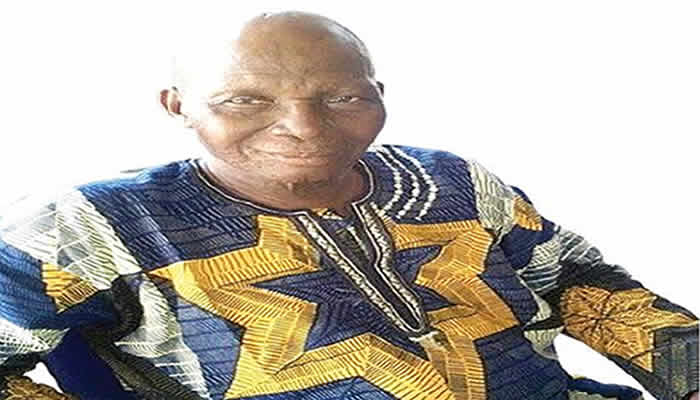
Prof Abass Adedibu, the eldest son of the late popular politician, High Chief Lamidi Adedibu, and a member of the Governing Council of Emmanuel Alayande University of Education, Oyo, talks to ALEXANDER OKERE about the legacy of the man who was known for calling the shots in Ibadan politics
Did you spend your formative years in Ibadan where your father resided?
My name is Prof Abass Aderemi Adedibu, the eldest son of the late High Chief Lamidi Akanji Ariyibi Adedibu. I was born in Ibadan and attended Children’s House School, Ibara, Abeokuta, Ogun State, for my elementary school between 1960 and 1966 and proceeded to Ibadan Grammar School, Molete, Ibadan for my secondary education between 1967 and 1971. I was one of the best pupils in the final-year examinations in secondary school.
I left Nigeria to further my educational career in the United States in 1972 when I gained admission to Indiana University-Purdue University, Indianapolis, Indiana, and graduated with a Bachelor of Science in Chemistry and Mathematics with highest distinction in 1976.
I also had a Master of Science degree in Educational Psychology in 1977, with a Professional Indiana State Teacher Licence in Chemistry, Mathematics, and Psychology. I later obtained another master’s degree in Physical Chemistry in 1978. I had my Doctor of Philosophy in Chemistry Education in 1981.
Did you consider taking up leadership positions as an undergraduate?
During my undergraduate days, I was the president of the Nigerian Students Association (from 1975 to 1977), president of the African Students Association (from 1978 to 1979), and president of the International Students Association (from 1979 to 1981). I was awarded Honorary Citizenship of the United States by Mayor Hudnut of Indianapolis for uniting international students in the State of Indiana.
Why did you choose a different path from your father, opting to be in academia instead of stepping into his shoes as a politician?
Sometimes, what people see from the outside is not what it is inside. My father loved education and encouraged all his children to embrace education. I embraced education based on his support and encouragement.
Are you the only child who embraced education to the highest level among his children?
I am not the only one because other siblings of mine pursued education to an appreciable level and they are doing well in their chosen profession.
Your dad was a renowned politician in Ibadan, Oyo State, and at the national level. What kind of father do you think was to his children?
My father was known to many people in Nigeria and elsewhere. That is why lots of people referred to him as the father of many people. He was a loving father to the children and he made enough effort to create time for them despite his busy schedule in politics and other personal activities. Whenever there was time for his children to be around him, he demonstrated what a father meant in a family.
What memories of your childhood with him do you fondly remember?
Many areas of his life come to mind each time I think of my past and his life. But one thing that stood him out as a father is that he took his prayers seriously. He would never joke with prayers.
Your dad was known for his populist style of politics and had many supporters. What was it like growing up with him?
It is not always easy to remember everything because there are different moments and times. As a political figure popular with several people at the grassroots, people learnt a lot from him watching him deal with peoples’ problems and providing solutions to them. His philanthropic work was without limit. It was interesting growing up seeing all these at a close range.
He was a loving father who hated cheating, unfair treatment of defenseless people, and being dishonest. He was fair to his people and shouldered their burden like a loyal ally.
What else will you say stood him out as a politician?
He was outstanding as a politician and able to sustain his political relevance and base because he learnt a lot from great politicians like the late Chief Obafemi Awolowo and the Ibadan politician, Chief Lanlehin, the late Chief Adisa Akinloye, and others. He took a lot from the lives of popular politicians and made concerted efforts to reward loyal supporters.
He was seen as a political father by millions of people in and outside the South-West. When you have such a trusted political figure and a philanthropist who was ready to fight for his people, it would be hard to play down his relevance.
He encouraged all his children and the people who followed him to have the best education. He paid the tuition fees of many children he did not have a biological link with.
As your dad, what were the major values he taught you?
My father taught me to be honest, fair, and most especially, be close to my God through prayer. It is the biggest lesson you can give to your children because it is the only way for human beings to recognise the place of God in everyday activities. My father never went out without saying his prayers and we emulate that from him.
There is a popular belief that influential families and parents often pamper their children, leaving strict discipline behind. What would you say of your father’s disciplinary style?
He had a special way of putting you where you belonged. He knew everything about his children and came up strong when they seemed to be going the wrong way. My father did not use the whip on his children because that was left for our mother to do. Our mother used the whip instead of our father.
Would you say he was over-protective?
When I was travelling to the United States for my post-secondary education in the 1970s, I left Nigeria with $317. When I arrived in the US, I met two of my elder sisters who owed $300 in house rent. I gave them the $300 from the money I came with, leaving me with $17 to live in the US.
The amount I left with from Nigeria was not the money I needed in the US. It was far less but my late father was short of funds during that period
How did you live on $17?
I was working while also schooling. It was tough but I was determined to study and excel because many of the people who travelled overseas and had no intention of studying would not return home.
Why do you think he was protective of you?
Well, there was something that happened soon after I left Nigeria to study abroad. My father did not announce his coming to the US to me in any of our discussions, but one day, he showed up at my school and asked questions about me from the dean of the school. He wanted to be sure I was in the US and studying at the school I told him. I was lucky to be around, just like I was surprised to see him but that explains the kind of father he was to his children. He had an interest in what we were doing and expressed it by making sure he visited us where we were if necessary.
As a busy man, how did he love to relax?
Relax? Baba Adedibu never relaxed because there was never time for him to do so. Or let me say that he never created time to relax. He became a populist politician early with thousands of people visiting him every day. Even when he had no visitor, he would come up with something that would eat up his time or take him somewhere. So he was always engaged in doing something that revolved around people.
Did he love telling jokes?
Many people solve big problems by using jokes to dilute them but my father treated issues the way they came in his way without losing any of their substance or important details.
It was said that nobody assumed any political position in Oyo without his approval. Why did he always have a say in who became what in Oyo politics?
As I said, he was a student of Awolowo and Lanlehin. He was a father figure and you cannot downplay his relevance in politics, either locally or nationally. He was respected by politicians from all over Nigeria so naturally, he was a force in Oyo State politics.
Did he play a major role in your career choice?
I would say he did because without his encouragement, financial support and assistance, I would not be what I am today. His place in my academic attainment is evergreen.
How early did your dad introduce you to politics?
In the late 1970s when I was still studying abroad, he had attained a level in politics so he sent for me to come home and become a commissioner in Oyo State. I told him that I would not go through all that I had gathered as an academic to come home and begin to carry people’s bags for employment and that I would come to Nigeria only when the Federal Government of Nigeria needed me.
Luckily, I was invited for an interview by the Federal Government on employment in Illinois, Chicago, in 1979 and excelled on merit not on a quota system.
Were you scared of Nigerian politics?
Politics is a dirty game in Nigeria. You have a brother or sister hating you because you do not belong to their political party. It is not a fair game here because people go there with selfish intentions. They spend money to win people but when they get to position, they go after the public treasury to make themselves rich while people who voted for them remain poor. Even the electorate that had had access to them before the election is shut out after winning the election. It is hard to reach a Nigerian politician once he gets what he wants.
Do you think he was disappointed that you didn’t join politics?
No, he was not disappointed. He was a man who respected people’s opinions especially when it came to politics. He would not force you to do anything you are not interested in. He might persuade you to do his wish but he would not force you. He didn’t express any disappointment in me that I did not join politics.
What did you find interesting about the way your dad managed his political base in Molete?
Everything about it was interesting. My father was in line to become Olubadan of Ibadan so he built that house in Molete, his political base, like a future Olubadan’s palace. He had all the aura of a father figure in politics and future Olubadan.
How would you describe the current state of the Molete residence?
What is natural and inevitable in life is change. Death can bring change just like other factors. When my father was alive, he played host to many political leaders and supporters in his Molete residence. The place is still alive without him and those who still love his political structure are still going there to stage political activities and meetings.
Many believe your dad’s style of politics also involved the use of thugs to intimate his opponents rather than allow people to make their choices. What’s your take on that?
We once had a conversation along that line. My father dealt with issues based on experience. He told me when I confronted him about the issue that if you had hungry people and fed them regularly, took care of their family needs, and protected them from injustice, they would be the ones to protect you when someone came to harm you. He wondered why one would categorise those who were protecting their benefactor as thugs.
Until his death, how many wives and children did your dad have?
He had eight wives and less than 20 children.
How would you describe growing up in a polygamous family setting like yours?
Let me quickly correct that notion. My father did not practice polygamy but polygyny because the term, polygamy, is subdivided into polygyny and polyandry. A man married to so many wives is called polygynist whereas a woman married to so many men is called polyandrous (which happens in some Asian countries).
To answer the question, children come out of such a setting when there is love and unity; these existed in our family and it helped us nurture understanding among all the children.
Did your dad have any other businesses, apart from politics?
Thank you for the question. Many people had the notion that my father lived all his life on financial gains from politics. But the truth is my father was a well-established contractor who got contracts from both federal and state governments. His wealth came from the work he did off the political scene. He sponsored politicians from the profit he got from the contracts. He sponsored governorship candidates and others with his money.
What was your last conversation with him?
A week before his death, I was in Ibadan from Abuja, and one of his wives told me that he was planning to celebrate the anniversary of the late former governor Adebayo Alao-Akala’s one year in office. If you remember, the late Alao-Akala became a full-time governor in 2007 and my father died in 2008.
I was told that he had paid to hire a long truck that would be decorated and he would sit at the back with his supporters driving around Ibadan while waving to people. What came to me was: was my father bidding bye to people? Why was he planning to move in a convoy of vehicles and waving from a long truck that the delivery truck beverage companies use to distribute their product? I rushed inside and sat him down to discuss the plan. I expressed my objection to it. He saw reason in my wisdom and shelved the plan.
Even after that, I did not return to Abuja until after he returned from the anniversary celebration. He returned from the event and met me at home. He asked why I did not return to Abuja as planned and I told him I wanted to be sure he complied with our discussion.
Unfortunately, a week later, he died. I was in the computer room in my Abuja office when I began to receive calls from Ibadan, and then one of my younger sisters who called began to weep. That was how I knew he had left us.
What would you say is your dad’s greatest legacy?
His best legacy is education.
He fell out with a former governor of the state and one of his proteges, Rasheed Ladoja, over the allocation of appointments. How did he feel about it?
Some people in Ibadan penetrated the good relationship they had and caused the misunderstanding. Senator Ladoja is like an elder brother to me but a son to my late father. They had the best of relationships before some people came in between them.
My father and (former) governor Ladoja’s father contested for a seat as councilor in 1954 but my father was defeated and he moved on. He later came to support the son of the same man who defeated him to become the state governor. It was a perfect relationship that was destroyed by people.
Did they reconcile?
If they reconciled before his death, Ladoja would have returned as governor.
Do you think your dad would have been happy with the state of Oyo politics if he were alive today?
Today’s politics is different from when my father was around. For example, if you spent 20 years abroad and returned to Nigeria with good money and you approached my father that you wanted to go into politics, my father would ask you to go back to your local government and ask them to introduce you as their representative.
This was important so that if the person failed, people in the council area would know that they were the cause of the failure. You cannot come to my father and tell him you want to contest for a senatorial seat or become governor as a first-time politician. He would tell you to start from the grassroots.
Today, people claim any local government they want and go away with it. I was discussing with a prominent politician in Ibadan recently and he told me how much they had missed my father in politics. He said in my father’s time, when some people were aggrieved at his party, he would wake up early and go to their houses with gifts for their families and seek the aggrieved people’s audience. Matters were settled in that way but today, people do what they like.
As a respected Ibadan man, how did he love to dress? Or was he a simple man?
He appeared in public in simple white attire on many occasions.
But he was aspiring to become Olubadan. If he had ascended the throne, would he still have worn those simple clothes?
He inherited several traditional free-flowing agbada from his father but after he died, those clothes were shared among us, the male children. However, it is not what he would wear that would make him a good Olubadan but what he would be able to do in the lives of his people.
What was his favourite meal?
Ibadan people love amala and gbegiri soup. He was no exemption.
What were his hobbies?
In his spare time, he read newspapers.





